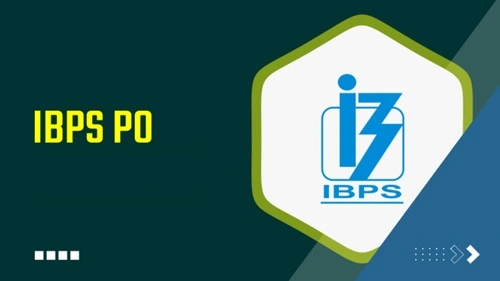In the ever-evolving landscape of education, schools play a crucial role in shaping young minds. While academic excellence has traditionally been the primary focus, an increasing number of educators and psychologists emphasize the importance of supporting individuality in students. Encouraging students to express their unique identities, interests, and talents can foster creativity, boost self-confidence, and improve mental well-being.
In 2025, as issues like student mental health, inclusivity, and career readiness take center stage, many schools across the U.S. are rethinking their approach to education. This article explores why schools should support individuality and how doing so benefits students, teachers, and society as a whole.
1. Individuality Enhances Student Engagement and Motivation

Students are naturally more engaged in learning when they feel their unique perspectives are valued. A 2023 study by the American Psychological Association (APA) found that students who are encouraged to express their interests and opinions are 35% more likely to stay engaged in school activities compared to those in rigid, one-size-fits-all environments.
By allowing students to choose their learning paths, whether through personalized projects, elective courses, or creative assignments, schools can make learning more meaningful. When students see their individuality reflected in the curriculum, they are more motivated to explore new ideas, take initiative, and develop a love for learning.
2. Supporting Individuality Boosts Self-Confidence and Mental Health
A lack of individuality in schools can lead to feelings of alienation, anxiety, and low self-esteem among students. The National Institute of Mental Health (NIMH) reported in 2024 that over 40% of teenagers experience anxiety and depression, often linked to academic pressures and societal expectations.
By fostering an inclusive and accepting environment, schools can help students feel valued for who they are, rather than forcing them to conform to outdated norms. Encouraging self-expression through art, music, fashion, writing, and open discussions allows students to build confidence and develop a strong sense of self.
3. Encouraging Creativity and Innovation
The world’s most successful innovators, from Elon Musk to Steve Jobs, thrived because they dared to be different. Schools that support individuality nurture creativity, which is essential for problem-solving and innovation.
A 2023 report by the World Economic Forum stated that creativity is one of the top five skills employers seek in today’s job market. By allowing students to think independently and express themselves freely, schools prepare them for careers that require adaptability, critical thinking, and originality.
Examples of Individuality-Driven Learning:
- Project-Based Learning: Letting students work on projects aligned with their interests.
- Flexible Learning Paths: Offering elective courses in music, technology, and social activism.
- Creative Assignments: Encouraging students to present research in artistic or unconventional ways.
4. Promoting Inclusivity and Cultural Awareness
A school that values individuality naturally promotes diversity and inclusion. Students come from different cultural, ethnic, and socio-economic backgrounds, and embracing these differences helps create a more inclusive society.
A 2024 survey by The National Education Association (NEA) found that schools with diverse and inclusive policies reported higher student satisfaction and better academic outcomes. Encouraging students to celebrate their unique cultural heritage, beliefs, and traditions fosters respect and understanding among peers.
5. Preparing Students for the Real World
In the workforce, individuals who can think independently, express their ideas, and embrace their uniqueness tend to be more successful. Companies are no longer looking for employees who simply follow instructions; they seek innovative thinkers and problem solvers.
Supporting individuality in schools prepares students for:
- Entrepreneurship: Many of today’s top business leaders started by thinking outside the box.
- Creative Careers: The fields of art, film, music, and writing thrive on self-expression.
- Tech and Innovation: Even in STEM fields, individuality leads to groundbreaking discoveries.
According to a 2024 LinkedIn report, employees with strong personal identities and creative problem-solving skills are 2.5 times more likely to be promoted. Schools must prepare students to embrace their uniqueness rather than suppress it.
Addressing Common Concerns
Q1: Won’t too much individuality lead to a lack of discipline?
Encouraging individuality does not mean eliminating structure. Schools can create an environment where students have freedom within boundaries—allowing self-expression while maintaining discipline and respect for others.
Q2: How can teachers balance individuality with standardized education requirements?
Teachers can incorporate personalized learning methods while still adhering to educational standards. For example, allowing students to choose essay topics or present history lessons in creative ways can meet curriculum goals while fostering self-expression.
Q3: What if some students struggle to find their individuality?
Not all students immediately know their passions or interests, and that’s okay. Schools should provide a variety of experiences—from art and music to sports and STEM—so students can explore different fields and discover what excites them.
Q4: Should schools allow self-expression in dress codes and hairstyles?
Rigid dress codes often suppress individuality and disproportionately affect certain student groups. Many schools are moving toward more flexible policies that allow students to express themselves while maintaining professionalism.
Q5: How can parents and educators encourage individuality at home and in school?
- Listen to students’ opinions and interests
- Support hobbies and extracurricular activities
- Encourage open discussions about self-identity
- Help students set personal goals based on their passions
Conclusion
In 2025, education is no longer just about memorizing facts and passing tests—it’s about preparing students to thrive in a dynamic, ever-changing world. Supporting individuality in schools boosts student engagement, fosters creativity, enhances mental health, and prepares young minds for real-world success.
Instead of enforcing rigid conformity, schools should celebrate diversity and encourage students to embrace their unique identities. By doing so, we empower the next generation to become confident leaders, thinkers, and innovators.
It’s time for schools to move beyond the traditional mold and cultivate a culture that values individuality as a strength, not a challenge.



